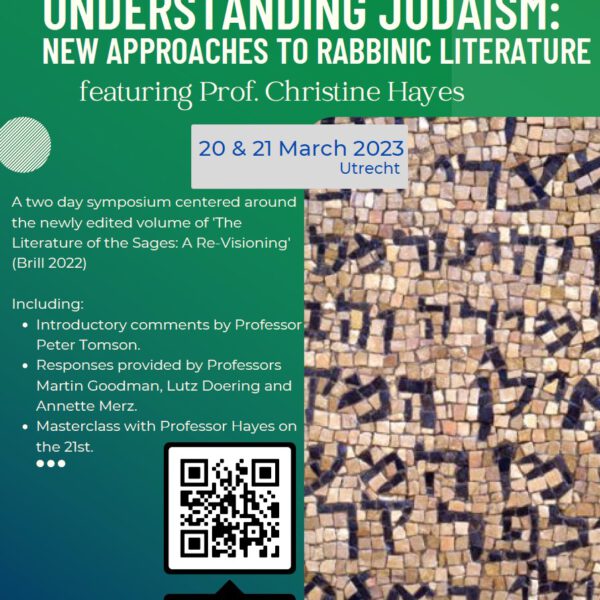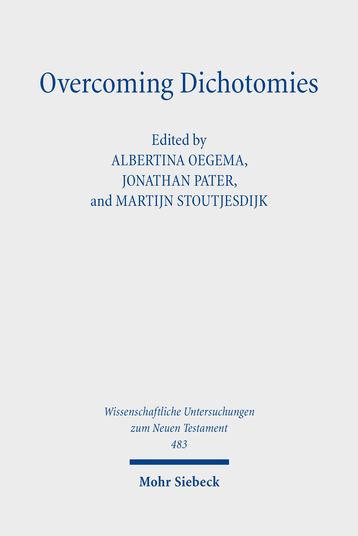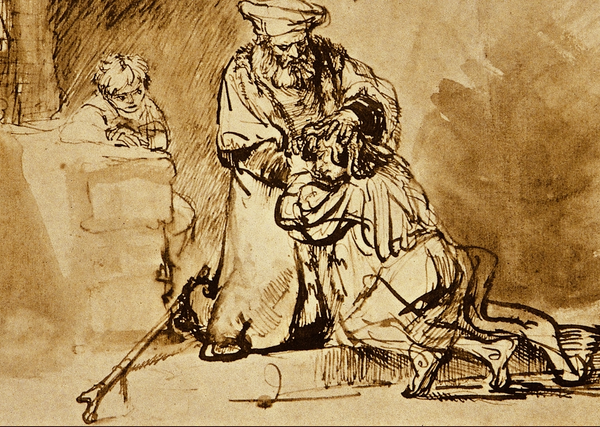Postdoc Project “Ageing and the Elderly in Early Christianity and Early Rabbinic Judaism”
As a postdoctoral researcher at the Protestant Theological University, I developed the research project “Ageing and the Elderly in Early Christianity and Early Rabbinic Judaism.” In this project, I study the conflicting images of old age in early Christianity and early Rabbinic Judaism (1st-4th cent. CE) from a comparative perspective. Both Jews and Christians showed respect for old age, but also excluded the elderly on account of their physical and mental deterioration. How were Jewish and Christian perspectives on old age influenced by the religious identities and social structures of their respective communities? What was the influence of biblical and early Jewish attitudes? And how can their views on old age be positioned within broader discussions of old age in the Greco-Roman world?

In particular, I study the layered processes of social in- and exclusion in our early rabbinic and early Christian sources. Where and when does social in- and exclusion of the elderly take place? What factors play a role in this? What is the role of stereotyping? How is the in- and exclusion of the elderly related to the gender, class, and freeborn/slave status of the aged person? How do privileging viewpoints of old age relate to marginalizing ones? And what impact did these attitudes have on the lives of the elderly in early Christian and rabbinic communities?
By comparing early Christian and rabbinic views of old age, it becomes clear how both groups were developing into distinct groups with their own social, religious, and ethnic profiles. Both Jews and Christians shared biblical and early Jewish origins, but, in the first centuries CE, developed into distinct groups with their own cultural, religious and ethnic profiles. This long and complex process has been called the “partings of the ways” between Judaism and Christianity. My comparative research project clarifies the extent to which Jews and Christians shared the same visions on old age or – under the influence of their evolving religious identities and social structures – assumed their own positions in the broader context of the Graeco-Roman world.
Currently, I am developing this project into a large research project with multiple subprojects for junior researchers. Given that research on old age in biblical and rabbinic studies is still in its infancy and very disciplinary oriented, this project aims to pursue the first systematic examination of old age in ancient Judaism and early Christianity from a long-term diachronic and comparative perspective. It will trace the development of the attitudes towards old age and the elderly from the Hebrew Bible onwards up to Byzantine Christianity and rabbinic Judaism (until the early Islamic conquests). This diachronic perspective will show how attitudes towards old age and the elderly evolved over time and were shaped by the developing religious identities and social structures of various groups of ancient Jews and early Christians within their wider ancient Near Eastern, Hellenistic, Roman, and Byzantine contexts.




